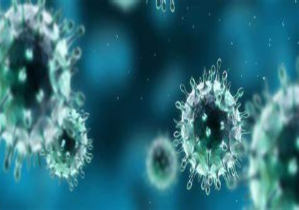Actually less than 1% of all bacteria cause disease.
實際上,只有不到1%的細菌會導致疾病。
The others perform countless useful functions in everyday lives.
其他細菌在日常生活中發揮著無數有用的作用。
Bacteria are behind many of our favorite foods.
我們最喜歡的食物背后有細菌。
And when those foods spill down the front of us, bacterial enzymes help get the stains out.
這些食物濺到我們面前時,細菌酵素會幫助去除污漬。
Even artificial snow relies on bacteria.
即使是人造雪也依賴細菌。
Protein from freeze-dried bacteria helps flakes to form out of water mist.
凍干細菌中的蛋白質有助于水霧形成薄片。
Bacteria are the oldest life-form on earth.
細菌是地球上最古老的生命形式。
They survive even thrive in some of the harshest environments.
它們能在最惡劣的環境中生存甚至茁壯成長。
In the hot springs of Yellowstone, in pools of acid, in caves in crevices in the earth without light or air,
在黃石公園的溫泉里,在酸池中,在沒有光和空氣的地球裂縫里,
next to ocean vents where the water temperature is 480 degrees Fahrenheit.
在靠近海洋噴口的地方,那里的水溫是248攝氏度。
This is what a bacterium is.
這就是細菌。
A single-cell organism with its own branch on the tree of life.
在生命之樹上有自己分支的單細胞有機體。
Daisies, squirrels and people are on the other side.
雛菊、松鼠和人類則在另一邊。
Because their bodies are made up of many cells.
因為它們的身體是由許多細胞組成的。

It's the smallest of three living organisms.
它是三種生物中最小的一種。
About a million would fit on the head of a pin.
一個別針的頂部可以放下大約一百萬個。
Viruses are a hundred times smaller, but they have to move into a host cell to survive.
病毒體積小上百倍,但它們必須進入宿主細胞才能存活。
Bacteria come in a variety of shapes and sizes and to reproduce they simply divide.
細菌有各種各樣的形狀和大小,它們為了繁殖只需分裂。
In many species, cell division occurs every 20 minutes.
在許多物種中,細胞分裂每20分鐘發生一次。
Bacteria have studied us more closely and more lovingly than any other creature.
細菌對我們的研究比其他任何生物都要密切,也更鐘情于我們。
Even your dog can't give you the devotion that your bacteria do
即使是你的狗也不能像細菌那樣對你忠誠,
they've explored and understood and taken advantage of every nook and cranny of the body to which they can gain access.
它們已經探索、了解并利用身體的每個角落和縫隙。
We are born bacteria free, but within hours we begin to be colonized with about 400 species of microbes
我們生來沒有細菌,但幾小時之內,我們的皮膚上、腸道內、口腔、鼻子和喉嚨里,
on our skin, in our intestines, in our mouths noses and throats.
就被大約400種微生物所占據。
There are more bacteria in our mouths than living people on the planet.
我們口腔中的細菌比地球上活著的人還多。
More bacteria in our bodies than human cells.
我們體內的細菌比人體細胞多。
Billions are helping to digest our last meal.
數十億的細菌正在幫助消化我們的剛吃過的一餐。
Those bacteria E.coli turn our food into sugars and processed vitamins.
這些大腸桿菌把食物轉化成糖和加工過的維生素。












